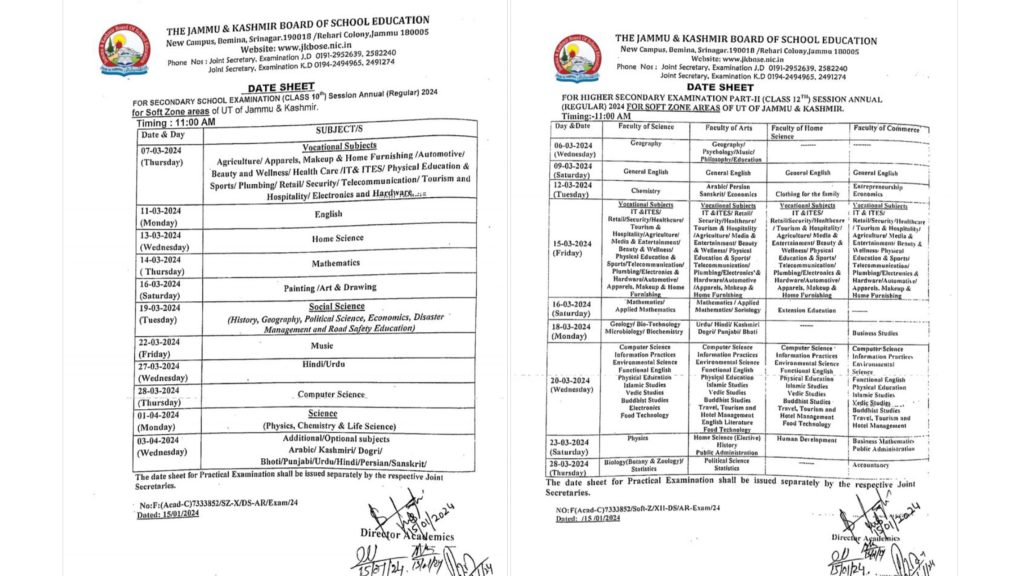Education
CBSE Boards: Class 10 Science Exam Marking Schedule and Study Guide


By - 08 Feb 2024 10:37 AM
The board exams for classes 10 and 12 of the Central Board of Secondary Education (CBSE) are scheduled to begin on February 15, 2024. Class 12 boards will expire on April 2, 2024, and class 10 boards on March 13. Students planning to sit for the boards can review past years' question papers by going to the CBSE's official website.
For exam success, students taking the Science board exam in class 10 can adhere to the preparation plan listed below. The most current CBSE sample papers, according to Kalpana Gangaramani, Founder and Managing Director of Target Publications Pvt. Ltd, indicate that competency-based questions frequently rely on basic ideas. In order to tackle these questions, students need to have a firm grasp of the underlying ideas. Nonetheless, certain competency-based inquiries might necessitate that students go beyond fundamental ideas. Students must focus intently on the details when answering questions with charts and diagrams."
Unit-by-unit planning approach
In the CBSE Board exam, Unit 1 Chemical Substances: Nature and Behavior carries a weightage of 25 marks. Questions from chapter 1 on identifying the type of reaction and products formed are asked based on the examination of previous year's papers and sample papers, according to Ms. Gangaramani. "In chapter 2, students must learn about properties of acids, important reactions of acids, neutralisation and concept of weak acids and weak bases, changes in value of pH and physical and chemical properties of metals, reactivity series particularly displacement reactions, formation of ionic compounds." Subjects pertaining to metal extraction, including crucial procedures like calcination and roasting, are also crucial. Students need to understand how some compounds, like Al, are refined.The expert points out that Unit 2: World of Living carries a weightage of 25 marks as well. "Chapter 5: Life Process contains questions about human transportation, respiration, and nutrition (plants). Pupils need to practice drawing the diagrams from this chapter as well. According to Ms. Gangaramani, "the CBSE question paper emphasizes topics like hormones and their functions, the nervous system in animals, including reflex actions, reproduction, and heredity."
Natural Phenomena, Unit 3, is worth twelve marks. Ms. Gangaramani claims that the questions in this unit's Chapter 9 center on image formation and ray diagrams. She counsels the pupils to become familiar with the relevant formulas and how to use them. The questions arising from these concepts are both theoretical and numerical, so they must sincerely study how the human eye functions, defects, and how to correct them.
"The effects of current in Unit 4 are assigned a weight of 13 marks. Since students are likely to have questions about every section of the chapter, it is imperative that all of the concepts from the Electricity chapter be given equal weight during revision, according to Ms. Gangaramani. Understanding the effects of force and magnetic field on the conductor is crucial for understanding chapter 12. In Section A of the papers, these ideas are given more weight.
Unit 5: Natural Resources contains questions from the Environment chapter, with a mark weight of five. Pupils need to be familiar with the ideas of the ozone layer, food webs, food chains, and ecosystems. Ms. Gangaramani notes that questions from this chapter are typically given 1 or 2 marks.
























